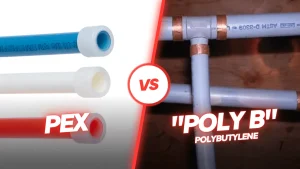
Latin man choosing temperature on thermostat. Young focused guy pushing button on smart home system. Concept of modern domestic lifestyle. Interior of kitchen in modern apartment.
Utility bills are a fact of life for most people. But there are ways to lower these expenses without having to invest in expensive upgrades. By following a few simple practices, you can save money and protect our environment. Listed below are a few simple ways to save money on home utilities. These are some of the most common practices that can help you lower your bills. For starters, you should avoid letting your water or electricity bill pile up.
Set up your utilities as early as possible. Most service providers allow you up to two weeks in advance of moving. Others require a longer notice, so make sure to contact your utility providers as early as possible. Depending on the provider, you can apply online for most services. Just make sure to have a good credit rating and pay a deposit to confirm your ability to pay the bills. This is an important first step in settling into your new home.
Identify your utilities. Basic necessities are gas, electricity, water, and sewer. Other important utilities include internet, cable TV, trash collection, and security systems. You might even have a home security system, but it will require monthly fees and upfront costs. Make sure to compare all your options before deciding which one is best for you. Then, plan accordingly. You can also consider how much you can spend on home utilities. If you’re moving in for good, consider switching your service providers.
Investigate the utility history of the home. Sometimes, people charge ahead without doing an inspection and move forward, despite problems with the house, neighborhood, and local schools. This is a common mistake, and it could prove to be very costly. Regardless of how much money you spend on utilities, it’s best to check utility history to avoid costly surprises later. And don’t forget about the safety of your family and pets. You’ll be happy you took the time to investigate your home utilities.
Before moving into your new home, it’s a good idea to check the city or county website to find out which utility providers are available in your area. If you have a lease, you might also want to ask the previous homeowners about their experience with the utilities. Public utilities are usually provided by one company, but it’s best to research and select a new service provider before moving into a new place. If you’re renting, find out who is responsible for your utilities three to four weeks before the move.
Water and sewage utilities vary by location, but typically include water for washing dishes, showering, and flushing toilets. You can find the water bill for your area by visiting your local utility commission. Water bills are issued to single-family homes, apartment complexes, and communities, and the manager will divide the monthly bill among all tenants. But if you’re renting a house or apartment, the water and sewer bills may be shared among many people.





